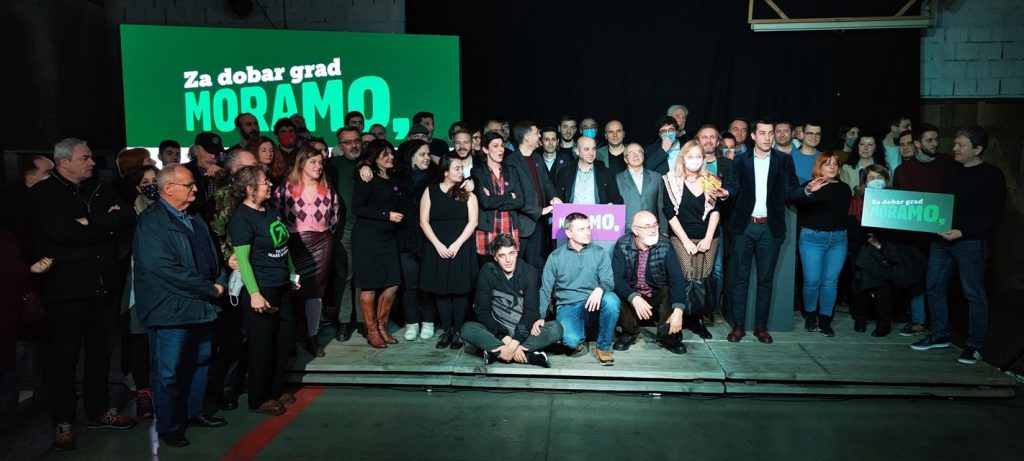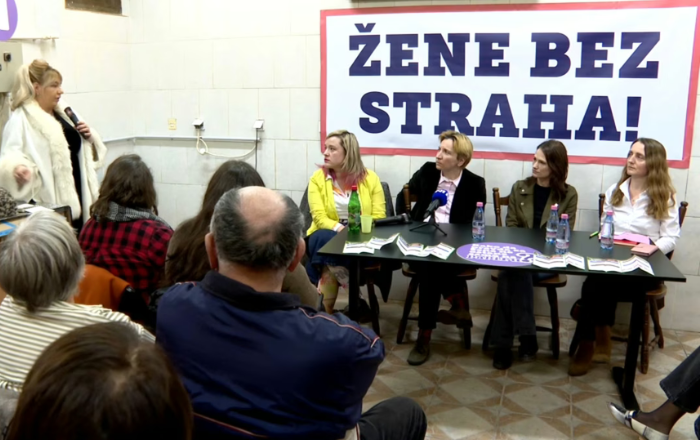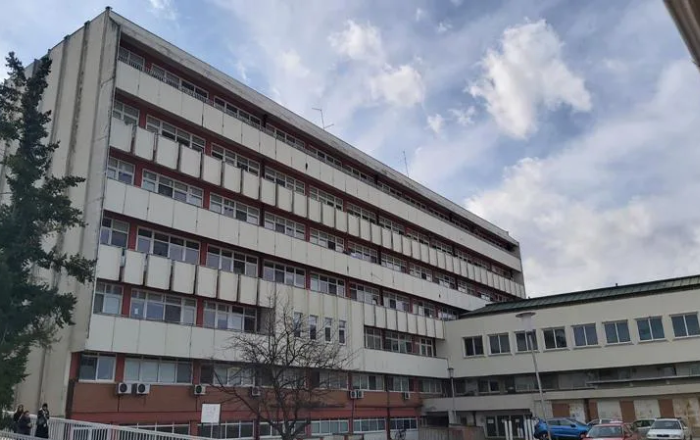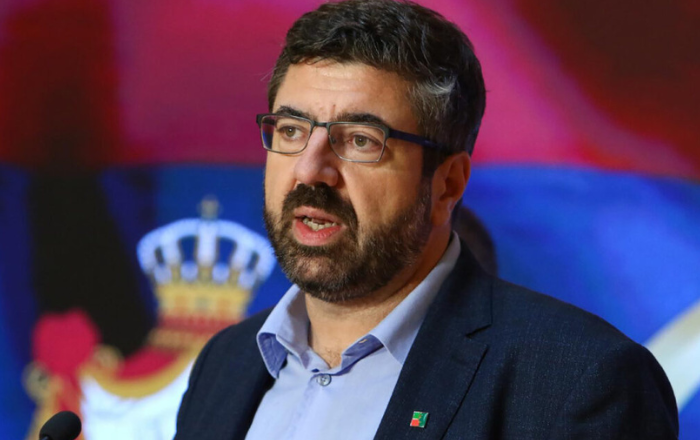Autor: Stefan Tasić

Over the previous decade, the Serbian capital Belgrade has been a center of politics that, in the first place, puts the interests of political and economic elites over the ones of its citizens. Emphasizing particular private interests over public interests has led to a continuous increase of corruption, alienation of public services through public-private partnerships, neglect of environmental issues, and attack on public spaces, urban centers, and common infrastructure. One such project that serves as a paradigm of corruptive and non-transparent procedures is the Belgrade Waterfront which was planned to give a new identity to the city. The project, started in 2014, implied transforming part of the city center by building a 2-million square meters luxury commercial-residential complex and extremely high Dubai-style tower. The Belgrade Waterfront project was followed by a lack of transparency, controversial foreign investors, false financial promises by the authorities, conflict with the law, and usurpation of the state institutions.
However, this project also had some side effects which back then, prime minister Vucic and his regime did not expect – it gave birth to the movement “Ne davimo Beograd” (eng. Don’t Let Belgrade Drown, abbr. NDM BGD), which organized the first mass mobilization against the regime. Since then, Ne davimo Beograd has come a long way, developing from a several-people-organized activist initiative to a green-left political movement with around 4000 members fighting for a different vision of Belgrade in which core is public interest tied to people.
The political context in Serbia is far away from the friendly environment for opposition actors to compete and challenge president Vucic’s and Serbian Progressive Party’s (SNS) regime. The character of the regime in Serbia can be defined as competitive authoritarianism, characterized by formal democratic procedures and a democratic façade but filled with authoritarian rule. The image of Serbia today is one of almost total media control, pressure on voters in the public sector to vote for the ruling parties, erasing the borders between the state, governing party, and criminal structures, and brutal propaganda against critical voices.
Moreover, we evidence the increasing concentration of wealth within a small group of elites and growing income inequality in the country, one of the highest in Europe. This trend additionally negatively affects the Serbian society, which is already profoundly polarized over multiple lines such as pro and against the regime, traditionalism versus modernism, and West or Russia. Nowadays, in Serbia, people have a high level of mistrust in political institutions as they feel political elites betrayed them too many times. In such a social environment characterized by an anesthetized hope, it is hard to be a political actor and gain credibility for political activism.
Nonetheless, there is hope on the other side of the political spectrum. Ne davimo Beograd has grown into an antipode to established politics and a force with the potential to transform an authoritarian and unjust system. It has developed bottom-up activism as its trademark to answer undemocratic and particular interests-focused politics. The movement has built a strong connection with people by being at every place in Belgrade where public interest was in danger – whether those were protection of green areas, parks, housing, workers’ rights, cultural institutions, or rising against controversial construction projects. As means to address social problems, Ne davimo Beograd’s grassroots activists stood with the people, integrated them into broader political processes, and offered concrete solutions for concrete problems in the city and their communities. The movement has brought a new approach into a vicious circle of Serbian politics marked by a continuous shift of elites that look only upon their interest. Participation, solidarity, and green politics are three ideological pillars of the movement which became recognizable among people.
NDM BGD is also known for nurturing participative and inclusive internal democracy as opposed to established practice within the majority of political parties in Serbia. Some of the bodies that are part of the movement’s structure include a Small council, as an executive body consisting of five members, a Big council that gathers coordinators of all thematic and territorial groups, a Political council, and the Assembly as the largest body of the movement, gathering all members and making final political decisions. Deliberative process between and within these bodies is essential and an unavoidable aspect of Ne davimo Beograd’s internal organization.
Namely, the movement recently announced to run in the upcoming elections for the Belgrade city parliament, which are to be held in spring 2022. This decision came as the result of the process in which movements members took part and made a final decision. Such a democratic approach shows the capacity of this political organization to oppose rooted decision-making processes that include the small and limited circles of elite groups deciding on any political move.
Ne davimo Beograd represents a real political alternative to the deeply established approach to politics in Serbia. Fighting for the transformation of a system that does not work in the interests of its citizens is by some considered radical. These groups are mostly the ones that exploit its benefits and would be endangered when changes come. In this case, being radical is not only positive and welcoming, it is necessary.
Source: https://www.theradicals.org/articles-1/2022/2/16/transforming-the-system-new-hope-for-serbia
Pročitaj i ovo:
Tribina “Žene bez straha” održana u Kuli
Tribina "Žene bez straha", u organizaciji Zeleno-levog fronta, održana je u Kuli kao odgovor na sve učestalije oblike digitalnog zastrašivanja žena koje učestvuju u javnom i političkom životu ove opštine uoči lokalnih izbora.
Grupa za zdravstvo ZLF: Reakcija na smrt dva pacijenta u Čačku
Urušavanje zdravstva nije tek apstraktan, politički koncept. To je proces koji se direktno odslikava na život i nepotrebnu smrt svih nas. Ono što se dešava u bolnici u Čačku nije tek događaj izolovan od sistema koji je SNS postavio - sistema krađe, postavljanja podobnih, partijski lojalnih direktora i urušavanja javnog zdravstva zarad jačanja interesa privatnog kapitala.
Lazović: Vučićev bes zbog veštačke inteligencije je jeftina predstava
"Ovom prilikom treba sebe da ponize, da pokažu da ništa ne znaju i da, pošto su oni nesposobni, mora Vučić sve sam. Sve to što on radi jeste jeftina predstava, ali to izgleda da radi kod njegovih birača", rekao je Lazović za Danas.








